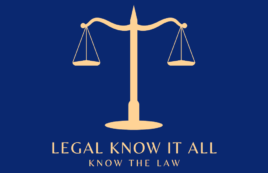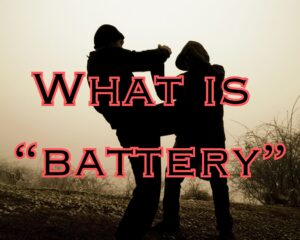The phrase “possession is 9/10 of the law” is a common saying that many have heard, but its meaning and implications are often misunderstood. This article aims to provide a clear, first-hand explanation of this adage, breaking down its significance in a way that is easy to understand.
Origin and General Meaning
The saying “possession is 9/10 of the law” is not a formal legal doctrine but rather a colloquial expression that emphasizes the power of possession. It suggests that in many situations, the person who physically possesses an item has a stronger legal claim to it, or at least, is in a more advantageous position.

The Power of Possession
The essence of this saying lies in the practical reality that possessing something can often be more influential than legal ownership in disputes. It’s based on the idea that having physical control over an item can sometimes be more powerful than having a legal title or ownership rights on paper.
Legal Interpretation vs. Common Misconceptions
It’s important to note that “possession is 9/10 of the law” is not an actual law or legal principle. In legal terms, possession and ownership are two distinct concepts.
Ownership vs. Possession
Ownership refers to the legal right to an item, including the right to use it, sell it, or give it away. Possession, on the other hand, simply means having physical control over something. While possession can be a significant factor in legal disputes, it does not automatically confer ownership.
Practical Applications
In real-world scenarios, the concept of possession playing a significant role can be seen in various situations. For instance, in property disputes, the person who physically occupies a property may have certain rights or may be in a better position to negotiate.
Dispute Resolution
In legal disputes, possession can influence the outcome. For example, if two parties claim ownership of an item, the one who currently possesses it may have a practical advantage. However, the ultimate decision will depend on a range of factors, including evidence of ownership.
Limitations and Legal Boundaries
The adage has its limitations and should not be taken as a justification for withholding property from its rightful owner. Legal systems have rules to protect the rights of the true owner.
Not a Blanket Rule
It’s crucial to understand that “possession is 9/10 of the law” does not apply universally. Legal ownership and rights cannot be overridden simply by possession. The law considers various factors, including how the possessor came to have the item.
While “possession is 9/10 of the law” is a popular saying that highlights the importance of physical control over an item, it is not a definitive legal rule. Ownership and possession are distinct concepts in the legal world, and possession alone does not equate to legal ownership. This adage serves more as a commentary on the practical realities of possession in legal disputes rather than a concrete legal principle. For those facing legal issues related to possession and ownership, it’s always advisable to consult with a legal professional for accurate guidance and representation.
Scope and Limitations of “Possession is 9/10 of the Law”
Understanding where the adage “possession is 9/10 of the law” applies and where it does not is crucial in recognizing its practical implications and limitations. This saying, while highlighting the importance of possession, is not a universal rule and has several catches that need to be considered.
Where It Applies
- Property Disputes: In cases where the ownership of an item is disputed, the person who currently possesses the item might be in a stronger position, at least initially. This is particularly true in cases where proving ownership is difficult due to lack of documentation or unclear history.
- Lost and Found Situations: If someone finds an item that is lost, their possession of the item can sometimes give them certain rights over it, especially if the original owner cannot be located. However, this is subject to specific legal conditions regarding lost property.
- Tenant Rights: In real estate, a tenant in possession of a property has certain rights against third parties, even though they do not own the property. Their physical occupation gives them a legal right to exclude others, including the owner, under certain conditions.
Where It Does Not Apply
- Stolen Property: The adage does not apply to stolen property. Possession of stolen goods, even if the current possessor is unaware of the theft, does not give them legal rights over the property. The original owner retains their rights and can reclaim their property.
- Intellectual Property: In the realm of intellectual property, such as copyrights and patents, physical possession of a copy does not equate to ownership of the intellectual property rights. These rights are governed by specific laws and are not dependent on physical possession.
- Legal Ownership Rights: Legal documentation and proof of ownership override mere possession. For instance, if someone possesses a car but another person holds the title, the title holder is the legal owner.
The Catch
The primary catch in the saying “possession is 9/10 of the law” is that it oversimplifies complex legal situations. Possession does play a role in legal disputes, but it is just one factor among many that courts consider. Legal ownership, rights of possession, how the item was acquired, and the intentions of the parties involved are also crucial elements.
Legal and Ethical Considerations
It’s important to remember that just because possession can be a strong factor in legal disputes, it does not justify unethical behavior. Acquiring or retaining possession of property that one knows belongs to someone else can lead to legal consequences.
Does This Saying Mean Possession is More Important Than Legal Ownership?
No, the saying does not imply that possession is more important than legal ownership. While possession can be a significant factor in legal disputes, it does not override established legal ownership. Legal ownership is backed by laws and documentation, whereas possession is a physical fact that may or may not align with legal rights.
Can I Claim Ownership of Something Just Because I Possess It?
Claiming ownership solely based on possession can be legally risky. If the item in question has a rightful owner with legal proof of ownership, their rights typically prevail. Possession without legal ownership rights, especially in cases of found or borrowed items, does not automatically grant ownership.
What Happens if I Find Something Valuable and No One Claims It?
Finder’s laws vary by jurisdiction, but generally, if you find something valuable and no one claims it, you may eventually gain legal rights to it. However, there are usually specific procedures to follow, such as reporting the found item to authorities and waiting for a certain period for the owner to claim it.
Is This Saying Used in Court?
While the saying itself is not used in court as a legal principle, the concept of possession playing a significant role in property disputes is recognized in legal proceedings. Courts consider possession as one of the factors in determining the outcome of property-related cases.
How Does This Apply to Real Estate?
In real estate, possession can confer certain rights to the occupant, such as a tenant’s right to use and enjoy the property. However, it does not grant ownership. The legal title and deeds are the primary determinants of ownership in real estate.
What Should I Do if Someone Possesses My Property Without My Consent?
If someone possesses your property without your consent, it’s advisable to seek legal advice. The course of action may involve proving your ownership and possibly initiating legal proceedings to reclaim your property.
Does This Adage Apply to Intellectual Property?
No, “possession is 9/10 of the law” does not apply to intellectual property. Intellectual property rights are governed by specific laws and are not dependent on physical possession of a copy of the work or invention.
Can Possession Affect Inheritance Disputes?
In inheritance disputes, possession of property or assets can be a factor, but it is not decisive. Legal documents like wills and trusts, along with laws governing inheritance, play a more significant role in determining the outcome of such disputes.
Understanding Your Rights as a Tenant
For those interested in property law, especially from a tenant’s perspective, the article 🌟 Understanding Your Rights as a Tenant: A Detailed Guide 🌟 on LegalKnowItAll.com is an invaluable resource. This guide provides comprehensive insights into tenant rights, an area where possession plays a crucial role.
Navigating Legal Differences
To grasp the broader legal landscape, the article 🌟 Common Law vs Statutory Law: What is the Difference? 🌟 offers a clear explanation of these two fundamental sources of law. Understanding these differences can provide context for how possession and ownership are treated in various legal systems.
Insights into Real Estate Law
For a deeper dive into real estate law, which often involves complex issues of possession and ownership, exploring articles related to property law on LegalKnowItAll.com can be highly beneficial. These articles offer detailed explanations and legal perspectives that are crucial for anyone dealing with real estate matters.
Comprehensive Legal Services
Additionally, for those seeking legal services, the article 🌟 Five Lakes Law Group: Comprehensive Legal Services 🌟 provides information about a law firm that offers a wide range of legal services, including those related to property and possession issues.
As an Amazon Associate we earn from qualifying purchases through some links in our articles.




